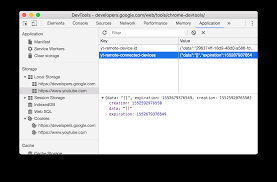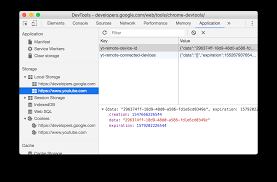How to Enable Browser Cookies and Local Storage
Many people are confused about the difference between enable browser cookies and local storage. While some cookies are used by websites and some are not, this article will explain what they are and how to enable or disable them on your browser. Read on to learn more about Session storage, Local Storage, and HTML5 local storage. Also, find out which one works best for you. Regardless of which one you choose, make sure to keep your browser up to date with all the latest changes.
There are two different types of data stored by browsers: local Storage and session Storage. The former stores data for only one session. This means that when you switch tabs on the same computer, your session Storage data will not be lost. The latter stores data until the user closes the window or tab that has the data. To find out which type of data is used in which websites, check the user’s browser’s help file Google.

Local Storage is more secure than cookies because it can be accessed in different tabs. But, unlike local Storage, session Storage data cannot be accessed from different tabs. HTTP Cookies are mostly used for user data persistence and authentication. They create a token and add it to every HTTP request. This is useful for websites that keep track of user actions. However, you can choose not to accept cookies if you don’t want to keep track of your users’ data.
How To Persistent Cookies:
If you want to enable persistent browser cookies, you will need to adjust several settings. Generally, cookies are used to collect identifying information about users, including their preferences for a particular Web site. Some of these cookies will expire after a specified period of time, but they are generally short-lived. For example, Google Analytics uses persistent cookies to track visitor behavior and collect information about which pages they view.
While most people accept the use of cookies and local storage, they should not be used for large pieces of data. Instead, you should use local storage to store user details. While cookies are temporary, data stored in local storage does not expire and is available whenever a user opens the site. This type of data can be stored in any browser and only needs to be cleared if the user decides to delete it.
How To HTML5 Local Storage:
The HTML5 standard introduced two new mechanisms for storing structured data on the client side, similar to HTTP session cookies. Cookies, which send data unencrypted over the Internet, are slow and inefficient. They can only hold about four KB of data and can cause performance issues when used by multiple web applications. HTML5 local storage and session storage are two completely different technologies that are used in different situations.

The former stores data until the browser window is closed, while the latter persists until the user clears their browser cache. Both are useful, though, in many situations. While cookies are temporary, localStorage can store data for up to 5 MB and is much easier to parse than cookies. It also allows web applications to store data for a longer period of time – unlike cookies – and even persists after a browser session.
Enable Dom Storage Or Cookies Safari:
If you’re concerned about the use of cookies on the Internet, you may have come across a new browser feature called ‘Expires when you disable browser cookies and/or local storage.’ This feature allows you to specify a time period, which is generally seven days, before a cookie expires. This can affect various aspects of your browsing experience, including reports and A/B testing.
The difference between local Storage and cookies is that the former stores data with no expiration date and the latter persists even if your browser is closed. In contrast, the former stores name/value pairs as strings. The latter can be converted to other file formats as needed. The session Storage feature is similar to local Storage, but it only stores data for a single session. It is automatically cleared when the user closes the browser tab.
How To Accessibility:
By enabling browser cookies, accessibility resolved software can remember your preferences and remember the settings for certain features of your web browsing experience. This includes the size of text and other customizations you’ve made. This allows the software to offer additional services to you. Accessibility resolved software may also collect anonymous data about your browsing activity on other websites. To prevent tracking by third parties, you should enable browser cookies and local storage in your web browser.
Enable Cookies Local Storage For Your Browser:
- Click the menu button in the upper right corner of the Chrome window.
- Select “Settings” from this menu.
- Click on “Cookies and site permissions”.
- Click on “Cookies and site data”.
- Turn on the “Allow websites to save and read cookie data (recommended)” setting.
- Turn off the setting for “Block third-party cookies”.
- Scroll down from there and make sure mystuff.bublup.com is not in your “Blocked” list.
- If you see “Bublup” anywhere, click the trash can icon to delete it.
Most web browsers will use different types of cookies, so it’s important to understand them and choose which ones are right for your needs. Browser cookies can be categorized by their storage limit and expiration date. While the cookies on your device last for a limited period, you can choose which ones to enable and which ones to disable. In most cases, the instructions are included in the browser’s “Help” or “Tools” facility.


